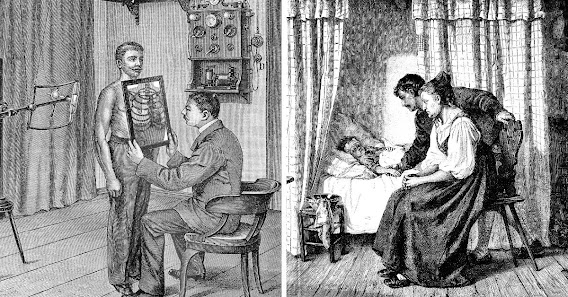The ‘leech to draw blood’ and other curious facts about medicine in ancient times
The ‘leech to draw blood’ and other curious facts about medicine in ancient times
Thanks to all the technological and scientific advances, we have better conditions to take care of our health. If you remember, in school they say that the death rate was low, about 30 years old. Why is it not so now? People manage to live longer thanks to the fact that various diseases are already known and it is known how they should be treated. This was not the case in ancient times. Learn about some curious facts from the time, like, for example, that they used a leech to draw blood from a patient.
It is well known that not long ago anesthesia existed, nor were there operating rooms where people could be treated. Indeed, many drugs were discovered as a disease like the Black Plague.
Without further ado, let’s discover curious facts about medicine in ancient times. Trust me, you’ll be surprised.
Curious facts about medicine in ancient times
Curious Fact #1 of Medicine in Antiquity
Hemorrhoids were treated by applying red-hot iron to the anal area.
Curious Facts of Medicine in Antiquity #2
Before 1500, there was no toilet inside the house. So it was customary to throw urine and feces out of the window. From 1513 the use of toilets indoors was ordered so as not to throw garbage out the window.
Curious Facts of Medicine in Antiquity #3
Bacillus Yesenia pestis caused the plague. It can be transmitted by direct contact with fluids or through fleas, which are carriers of the disease carried by rats. After incubation, the individual may die 24 to 36 hours later.
People thought it was airborne, so they wore masks to protect their nose and mouth. Unfortunately thousands of people died, to the extent that there were corpses on the streets. The only preventive measure was isolation,
Curious Facts of Medicine in Antiquity #4
Blood drawing was a popular treatment for various ailments. Doctors believed that excessive blood in the body caused many problems. If too much blood is needed, they cut the appropriate vein. If a little blood was needed, they used leeches.
Curious Facts of Medicine in Antiquity #5
In the Middle Ages people were forbidden to take a bath. He was of the view that linen clothing, a little air, and cosmetics were enough to ‘smell good’. They may have saved a few liters of water, but after a few days the smell was quite unpleasant.
Curious facts #6 of medicine in ancient times
In the Middle Ages, doctors used urine to diagnose various diseases. In addition to taking into account the urine sample, he used a table of planets with which he diagnosed the problem and worked out the best solution to treat it. The human body and the planets (as well as the four elements) are believed to be in harmony if the body is healthy.
Curious Facts of Medicine in Antiquity #7
Pope Innocent III forbade the priestly class from practicing surgery, because the Church hated blood. To serve the people, barbers or farmers were ordered to be taken. Despite the risks, its role remained very important for many centuries.
Curious facts # 8 of medicine in ancient times
In ancient times, anesthesia did not exist, so other substances such as opium or mandrake were used to induce sleep. Furthermore, alcohol was basic to comfort the patient who was being operated on.
Curious Facts of Medicine in Antiquity #9
Obviously, the deadliest disease in the entire history of mankind has been tuberculosis. Its origins date back to about 30,000 years; Although some scientists believe that it is longer than its existence. The first vaccine to combat it was discovered in 1921.
Undoubtedly, we should be grateful for all the discoveries that have been made in the field of medicine.

.webp)
.jpg)

Comments
Post a Comment